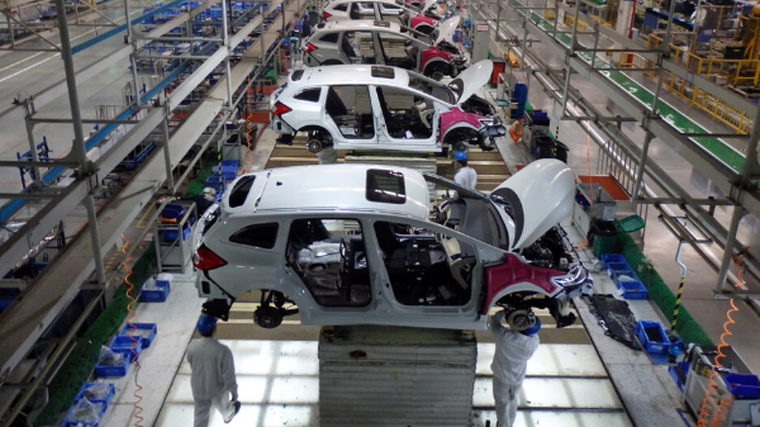Japan’s car industry fears prolonged virus disruption

Japan’s struggling carmakers are having to alter their production plans as the coronavirus outbreak forces them to order partial plant closures and prolongs troubles with getting parts from China.
Some of the world’s leading marques are already experiencing delivery delays with models after taking longer than expected to restart production lines.
With virus fears keeping many consumers away from showrooms, sluggish sales are an added problem for the companies.
The epidemic and its impacts are the latest blow for Japan’s carmakers, whose sales have taken a hit in recent months from last year’s consumption tax hike, typhoons and floods.
New vehicle sales in Japan, including trucks and buses, fell 10.3 per cent in February from a year earlier to 430,185 units, the fifth straight double-digit monthly fall.
Analysts expect new car sales to fall again in March, with some predicting the drop could be as much as 30 per cent and business unlikely to return to normal levels until May at the earliest, reports The Japan Times.
Missing delivery deadlines
When the Japan Automobile Dealers Association revealed sales in January dropped 11.7 per cent from the same month in 2019, it hoped trade would pick up in February as Toyota and Honda launched remodelled versions of the Yaris and Fit, respectively.
Delivery deadlines of some cars, including the Fit, have already been missed because of disruptions to parts imports from China, says Kazuo Kato, chairman of the JADA.
Toyota was upbeat in its latest projection for the business year ending in March, raising its sales estimate for the year by 30,000 to 10.73 million vehicles. However, the outlook was part of its quarterly earnings report in early February and did not factor in the effects of the COVID-19 outbreak.
Nissan has suspended output at its plants in Tochigi and Fukuoka prefectures, saying required parts could not be shipped from China. Honda also plans to reduce output at two of its domestic plants in Saitama Prefecture this month due to concerns about parts supply.
So far, Honda has kept up its production levels by increasing output of models for which the company had enough parts in stock.
Suzuki and Mazda have also faced difficulties in procuring parts from China and have delayed production of some models.
The automotive industry is Japan’s largest manufacturing sector and the government is keeping an anxious watch on developments.
“We want to stay in close communication with Japanese auto [companies] and their suppliers as the situation could suddenly turn for the worse,” says Futoshi Kono, head of the automobile division at the Ministry of Economy, Trade and Industry.





